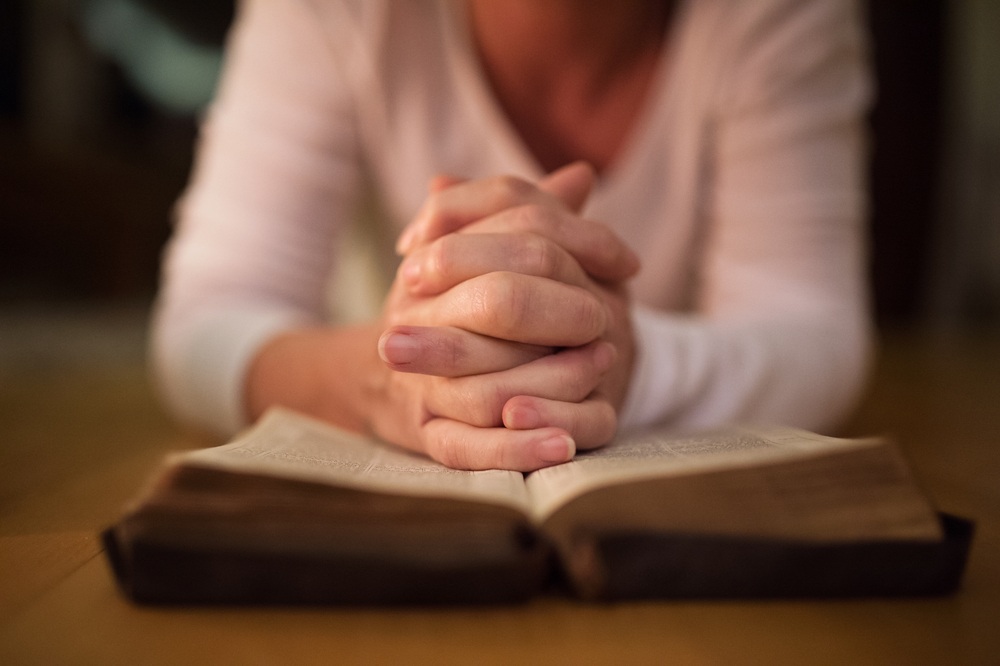Why Should I Forgive?
Exploring the Steps to Emotional Freedom and Healing

Imagine yourself sitting in your favorite quiet spot, the sun gently warming your face. It’s a sunny day, but your heart feels heavy. You’ve been wronged, hurt by someone close to you and the idea of forgiving them feels impossible.
Forgiveness — a word that holds immense power in the realm of our Christian walk — can mend relationships, heal wounds and set us free from the burdens of resentment. Let’s explore the art of forgiveness.
Forgiveness’s Foundation
Jesus’ words echo the significance of forgiveness in our relationship with God. “For if you forgive others their trespasses, your heavenly Father will also forgive you, but if you do not forgive others their trespasses, neither will your Father forgive your trespasses” (Matthew 6:14-15 ESV).
Forgiveness is rooted in the very character and actions of God, and at the heart of it is restoration and reconciliation. It’s about mending what’s broken and healing what’s hurt, beautifully illustrated in the relationship between God and humanity. Despite our flaws and mistakes, God offers forgiveness, which is most powerfully demonstrated in the life, death and resurrection of Jesus. God loves you so much He sent Jesus to willingly to bear the cost of your mistakes to bring you back into relationship with Him.

In the New Testament forgiveness is closely tied to Jesus’ teachings and actions. He often spoke about the importance of forgiving others with a continual attitude of grace and mercy. Think of the Lord’s Prayer, where Jesus teaches us to ask for our sins to be forgiven, as we forgive those who sin against us. It’s a reciprocal relationship, reflecting God’s heart.
Joseph’s journey in the Old Testament speaks to the transformative power of forgiveness (Genesis 45). His brothers betrayed him and sold him into slavery. Yet, when he finally had the power to seek revenge, Joseph chose to forgive them. His act of forgiveness not only mended his family but also saved an entire nation from famine.
Forgiveness is about letting go of the desire for revenge or holding onto grudges, and instead, choosing love, grace and mercy. It’s something God empowers us with to extend to others. It’s not always easy, but it’s a journey worth taking, with God’s help and guidance.
Forgiveness’s Challenges
Perhaps you’ve experienced betrayal, or maybe it’s the weight of resentment that holds you back. It’s not easy to let go of hurt and anger, but carrying these burdens can hinder your faith journey and emotional well-being.
We all face challenges when it comes to forgiveness. Sarah was deeply hurt by her best friend’s betrayal. She felt a growing bitterness in her heart, and it seemed impossible to forgive.

The emotional aspect is one of the heaviest challenges when someone hurts us. The emotions are real and valid, and the Bible doesn’t ask us to simply ignore or suppress them. Instead, it’s about working through these feelings with God’s help. It’s like going on a walk with a friend who understands your pain and helps you process it, rather than just telling you to get over it.
Another challenge is the misunderstanding of what forgiveness requires. Sometimes, we might think forgiving someone means what they did was okay, or that we have to forget the hurt. But that’s not the case. Forgiveness doesn’t mean excusing the wrong or pretending it didn’t happen. It’s more about releasing the hold that the hurt has on us, so it doesn’t turn into bitterness or resentment.
Forgiveness is a process of healing for ourselves, as much as it is an act of grace towards others.
Then there’s the aspect of reconciliation. Forgiveness doesn’t always lead to a restored relationship, especially in cases of abuse or deep betrayal. The Bible advocates for reconciliation where possible, but it also prioritizes safety and wisdom. It’s about finding that balance between extending forgiveness and maintaining healthy boundaries.
Practicing forgiveness can also be challenging because it’s countercultural. Our world often promotes the idea of getting even or holding onto grudges. Going against this mindset requires strength and often, a lot of support and prayer. It’s like swimming upstream – it takes effort and determination.

Lastly, forgiving ourselves can sometimes be the hardest part. We might accept that God forgives us but struggle to let go of our own guilt and shame. It’s important to remember that God’s forgiveness is complete and all-encompassing. Embracing this can help us take a step forward in our spiritual journey.
The key through these challenges is to lean on God’s strength and wisdom through honest conversations and support from our faith community. It’s okay to take it slow, embrace the process, with God walking beside us.
A Christlike Approach to Forgiveness
Just as Jesus forgave those who crucified Him (Luke 23:34), we are called to extend forgiveness to others. Let’s start by addressing the challenges with Scripture.
Ephesians 4:31-32 can help us with the emotional challenge of dealing with feelings of anger, betrayal, or sorrow. “Get rid of all bitterness, rage and anger, brawling and slander, along with every form of malice. Be kind and compassionate to one another, forgiving each other, just as in Christ God forgave you” (NIV). As you read these words, you can begin to let go of negative emotions and instead embrace kindness, compassion and forgiveness, following the example of Christ.
Realizing that forgiveness doesn’t mean excusing the wrong or forgetting the hurt helps us to balance forgiveness with healthy boundaries. Psalm 103:12 says, “As far as the east is from the west, so far has he removed our transgressions from us” (NIV). Forgiveness removes the burden of sin, without pretending it never happened. It’s a model of how we can release the hold of hurt in our lives.
The path of forgiveness is countercultural to the world. Jesus suggests a process for addressing wrongs and seeking reconciliation, while also acknowledging that sometimes, restoration may not be possible and boundaries are necessary. He said, “If your brother or sister sins, go and point out their fault, just between the two of you. If they listen to you, you have won them over. But if they will not listen, take one or two others along, so that ‘every matter may be established by the testimony of two or three witnesses.’ If they still refuse to listen, tell it to the church; and if they refuse to listen even to the church, treat them as you would a pagan or a tax collector” (Matthew 18:15-17 NIV).

And Romans 12:19-21 encourages believers to resist the natural urge for revenge and instead respond with kindness, trusting God for justice. “Beloved, never avenge yourselves, but leave it to the wrath of God, for it is written, ‘Vengeance is mine, I will repay, says the Lord.’ To the contrary, ‘if your enemy is hungry, feed him; if he is thirsty, give him something to drink; for by so doing you will heap burning coals on his head.’ Do not be overcome by evil, but overcome evil with good” (ESV).
Forgiving ourselves can be very difficult at times, but we can overcome this challenge by accepting God’s forgiveness for our own mistakes. The words from 1 John 1:9 are an invitation to accept this forgiveness and move forward without self-condemnation. “If we confess our sins, he is faithful and just and will forgive us our sins and purify us from all unrighteousness” (NIV).
Take a moment right now to pray. Come to God just as you are and begin to pour out your heart to Him. Ask Him for the strength to forgive, to let go of the hurt that’s been gnawing at you.
4 Steps to Freedom
Forgiveness is a process and it’s okay to take the time you need. Let’s break it down into practical steps:
- Reflect and Acknowledge
Take time to reflect on your feelings and acknowledge the hurt. It’s okay to admit that you’ve been wounded.
2. Pray for Strength
Turn to prayer, seeking strength from God. Ask Him to help you find the courage to forgive.
3. Choose to Let Go
Make a conscious choice to let go of the offense. Understand that forgiveness benefits you as much as it does the other person.
4. Extend Grace and Love
Practice extending grace and love toward the offender. Remember the example of Christ’s love on the cross.
As you gradually release the burden of unforgiveness, you can expect to feel a sense of freedom taking root in your heart.
Forgiveness’s Transformation
In the small town of Maplewood, Sarah had always found solace in her lifelong friendship with Emily. They shared everything from childhood secrets to dreams of the future. But their bond was deeply shaken when Emily betrayed Sarah’s trust in a significant way, divulging a personal secret that Sarah had confided in her. The revelation not only embarrassed Sarah but also caused ripples in her other relationships. Initially, Sarah was engulfed in a storm of emotions – hurt, anger and a trembling sense of loss. She found herself withdrawing, not just from Emily but from others, as trust became a bridge too fragile for her to tread upon.
As weeks turned into months, Sarah struggled with her pain. In her quiet moments, she often turned to God for comfort, finding relief in Scripture and in prayer. It was during one such moment, while reading about forgiveness and restoration, that something shifted within her. She realized her resentment was not just a barrier between her and Emily, but also a thief to her sense of peace. Sarah began to understand that forgiveness was not about condoning what Emily did, but about freeing her own heart from the weight of bitterness. She prayed for strength and guidance, seeking a path to forgive Emily, not just in words, but genuinely from her heart.
The journey wasn’t easy, but as Sarah took tentative steps towards forgiveness, she noticed a transformation within herself. She reached out to Emily, and they had a heartfelt conversation where tears were shed, apologies were made and understanding began to bridge the gap. Forgiveness did not erase the past, but it opened a door to a new chapter in their friendship, one built on a deeper understanding and a renewed sense of trust.

More so, Sarah felt a significant change in her own spirit. She found herself more open to love, more compassionate and more connected to her faith. Forgiveness had not only mended a broken friendship but had also drawn her closer to Christ, allowing her to experience His grace in a way she never had before. In this newfound space of grace and love, Sarah discovered a peace that surpassed all understanding, a testament to the transformative power of forgiveness.
As you extend forgiveness, you create space for God’s love and grace to flow into your life.
The transformative power of forgiveness often leads to healing, reconciliation and a deeper connection with Christ.
Forgiveness’s Journey
Remember, you are not alone on this journey of forgiveness. We, as a community of faith, are here to support and encourage one another. We pray you embrace a life where forgiveness flows freely—a life filled with healing, reconciliation and a deeper connection with Christ.
